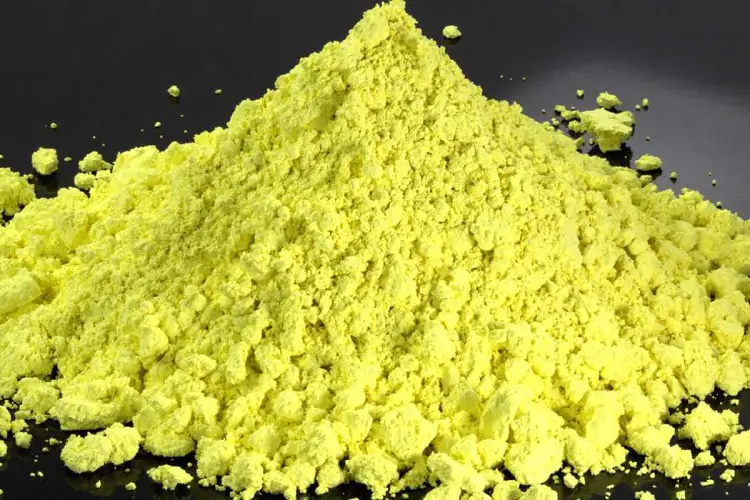
24 Dec Sulfur
Sulfur is a chemical element with the symbol “S” and atomic number 16. It is a nonmetal that is found in nature in various forms, including elemental sulfur, sulfides, sulfates, and sulfites. Sulfur is widely distributed in the Earth’s crust and is an essential element for life.
Here are some key points about sulfur:
Physical Properties: Sulfur is a yellow, brittle solid at room temperature. It has a characteristic odor and is insoluble in water but soluble in organic solvents.
Chemical Properties: Sulfur is chemically reactive and can form compounds with many other elements. It readily reacts with oxygen to form sulfur dioxide (SO2) and with metals to form sulfides.
Uses: Sulfur has numerous industrial applications. It is used in the production of sulfuric acid, which is one of the most widely used industrial chemicals. Sulfur is also employed in the manufacturing of fertilizers, dyes, rubber, paper, detergents, and various pharmaceuticals. Additionally, sulfur is used in vulcanization, a process that strengthens and stabilizes rubber.
Environmental Impact: Sulfur compounds can have environmental effects. When sulfur-containing fuels, such as coal and oil, are burned, they release sulfur dioxide (SO2) into the atmosphere. SO2 can contribute to air pollution and the formation of acid rain. Efforts have been made to reduce sulfur emissions from industrial processes and fuel combustion to mitigate these environmental impacts.
Biological Importance: Sulfur is an essential element for all living organisms. It is a component of certain amino acids, vitamins, and coenzymes. Sulfur is involved in various biological processes and plays a crucial role in protein structure and function.
In summary, sulfur is a chemical element with various industrial applications and biological significance. It is a versatile element with important roles in different sectors, ranging from industry to agriculture to biology.

